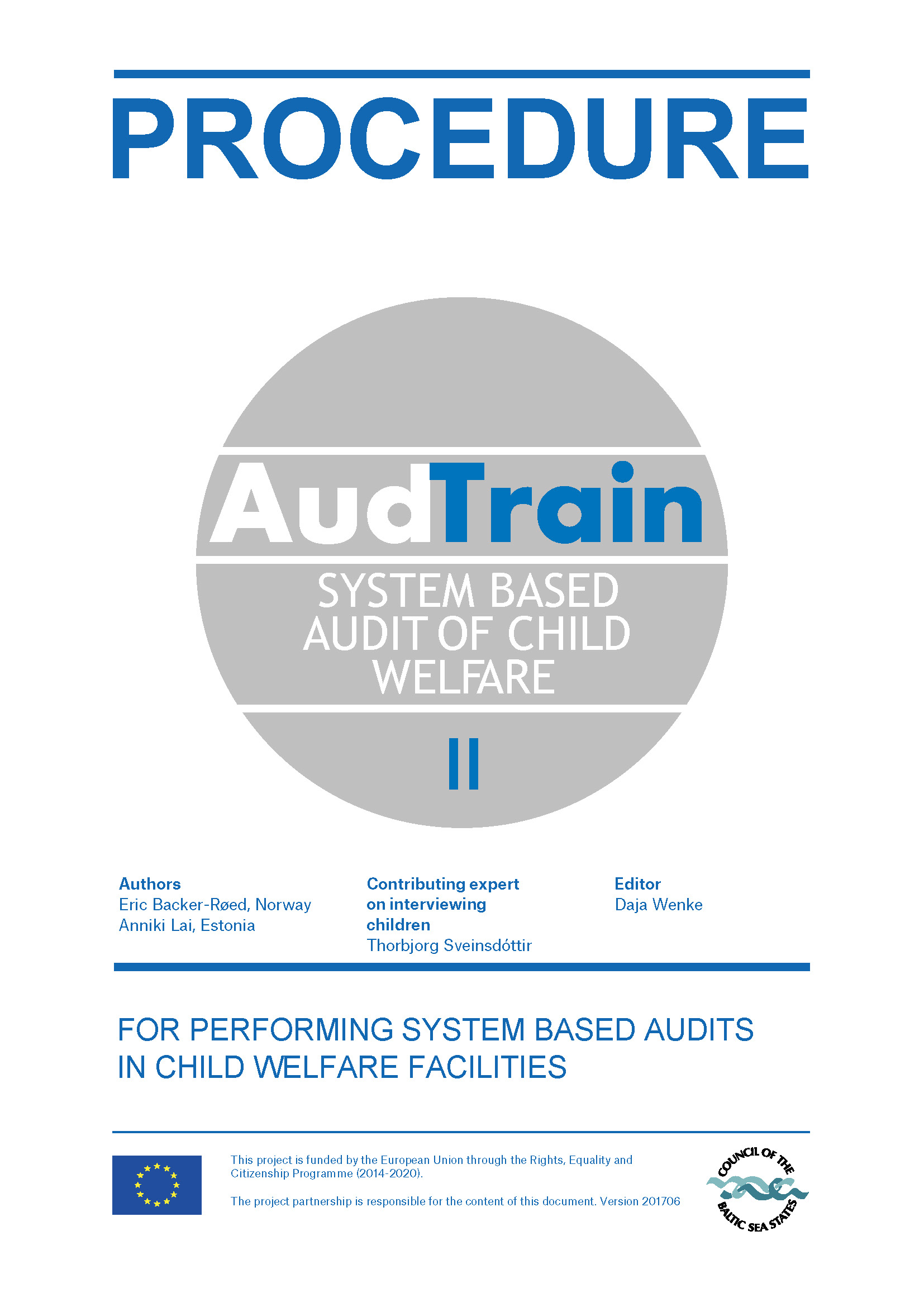
The AudTrain Procedure document is an overview of the AudTrain method and a glossary of key terms. It describes how a system based audit with verification (if relevant) of a child welfare facility should be planned, performed and reported. It can be used as a practical guide for audit personnel within this field. The procedure is an integral part of the basic course on the AudTrain Model for monitoring child welfare facilities.